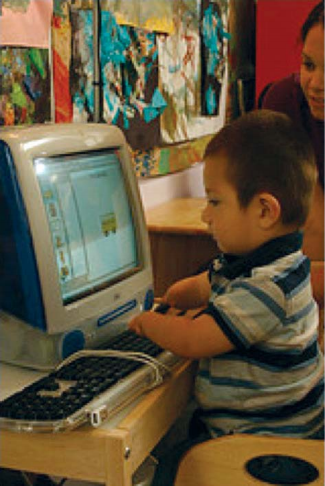5 1.3: Inclusion
When we talk about inclusive early childhood education, we are talking about programs that are designed for children and families from a wide range of backgrounds. A program can serve diverse families, but not be truly inclusive; you can have families from different backgrounds in your program, but do they feel welcome? Are you forcing them to adapt to a program that isn’t designed for them or that doesn’t take into consideration their social, cultural, and/or racial contexts? Designing an inclusive program translates to everything from physical space to how you interact with children and families. [14]
Inclusion as it Relates to Children with Disabilities
Inclusion embodies the values, policies, and practices that support the right of every child and their family, regardless of ability, to participate in a broad range of activities and contexts as full members of families, communities, and society. The desired results of inclusive experiences for children with and without disabilities and their families include a sense of belonging and membership, positive social relationships and friendships, and development and learning to reach their full potential. The defining features of inclusion that can be used to identify high quality early childhood programs and services are:
- Access – providing access to a wide range of learning opportunities, activities, settings, and environments
- Participation – even if environments and programs are designed to facilitate access, some children will need additional individualized accommodations and supports to participate fully in play and learning activities with peers and adults.
- Supports – an infrastructure of systems-level supports must be afforded to those providing inclusive services to children and families. [15]

Children with disabilities and their families continue to face significant barriers to accessing inclusive high-quality early childhood programs and too many preschool children with disabilities are only offered the option of receiving special education services in settings separate from their peers without disabilities. [17]
Think About It…
Describe your understanding of how diversity, equity, and inclusion are related.

